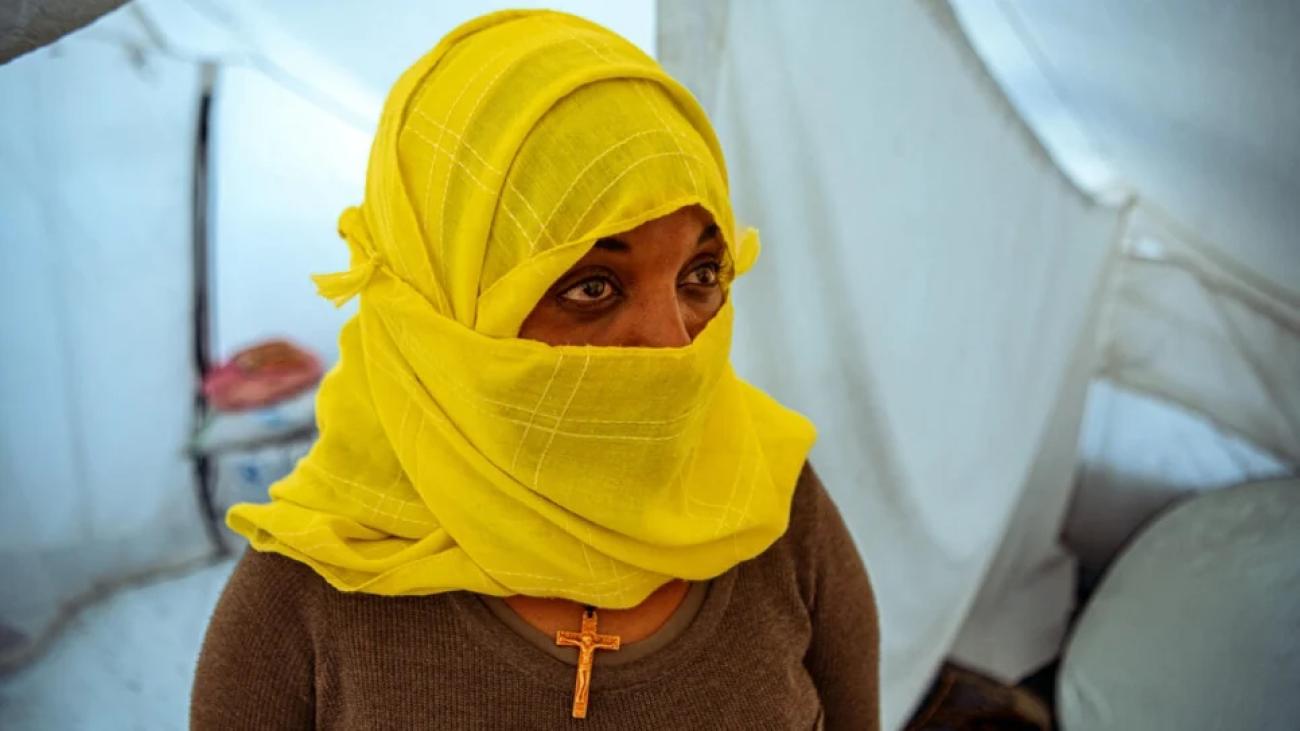Northern Ethiopia peace deal restores hope for displaced

A November peace agreement means people displaced by the conflict in Ethiopia’s northern regions can once again think about home and the future.
Children play football in Alemwach refugee site in Ethiopia's north-western Amhara region.
Just seven days after the birth of her son, 32-year-old Mashwa Hailu was forced to flee her home when conflict erupted. “Our home was destroyed, and I fled with my children and parents on foot to safety,” says the mother of two who has been displaced in Tigray’s capital, Mekelle, since fighting broke out in November 2020.
The signing of a peace deal last November has meant an end to two years of conflict and the return of hope for Mashwa and others who dream of returning home after years of fear and uncertainty. “I hope that this peace process will bring all things back to normal,” she says. “I hope that all people will go back to their places of origin to restart their lives.”
The conflict in northern Ethiopia uprooted hundreds of thousands and severely disrupted the provision of life-saving humanitarian assistance, plunging people like Mashwa into still more dire conditions. Among the displaced are Ethiopians as well as refugees from other countries who had sought safety in Ethiopia before the conflict began.
Since the peace agreement, the situation has begun to improve. “We are so happy about this peace agreement,” Mashwa says.
On a three-day visit to Ethiopia that ended on Tuesday, the UN High Commissioner for Refugees Filippo Grandi said he was very encouraged by the progress underway.
“The peace agreement has improved the situation, allowing humanitarian agencies to deliver more aid to areas that have been very difficult to access during the hostilities. This means more people in northern Ethiopia can get access to critical services now and [be] accompanied towards solutions,” said Grandi.
In Alemwach, a settlement for Eritrean refugees in the north-western Amhara region, Grandi met some of the 7,000 Eritrean refugees relocated by the Government Refugee and Returnees Service, UNHCR, the UN Refugee Agency, and partners from neighbouring Tigray since the cessation of hostilities in November. “I am grateful to the Ethiopian Government for providing land to Eritrean refugees and I am also grateful to the local authorities and host communities for accepting them,” said Grandi.
UNHCR “has scaled up critical assistance to affected populations who lost everything during the conflict, but we need sustainable funding to support solutions for refugees and other displaced,” Grandi added.
UNHCR is working closely with the government of Ethiopia to ensure displaced communities are included in national development plans, and to create an integrated assistance programme that supports both refugees and host communities.
Selam* runs a small café attached to her shelter in Alemwach where she lives with her 13-year-old son, and her younger brother. The sweet smell of traditional incense wafts through the air, mixed with the strong aroma of roasted coffee.
“My son is the main reason why I am alive,” Selam says. “I want him to get a good education and a bright future. He is my everything.”
She fled to Ethiopia from Eritrea in 2016, following the arrest of her husband. “They also threatened me, so I escaped with my son and brother,” she says. “I wanted to save my brother from forced military conscription too, so I sold my jewellery to pay for transport to cross the border to Ethiopia through Djibouti.”
She first settled in Adi-Harush refugee camp in the Tigray region, but when the devastating conflict broke out in late 2020, she was forced to flee again and subjected to horrific sexual violence by her smugglers.
“After two days in the forest, we found people collecting firewood who helped us to return to the camp where the Ethiopian Government’s Refugees and Returnees Service and UNHCR provided me with medical treatment, and later relocated us here to Alemwach site,” she says.
Alemwach is now home to over 22,000 Eritrean refugees, who receive water, shelter, health services and education from UNHCR and its partners. The most vulnerable, such as Selam, also receive psychosocial support and cash assistance.
For Selam, the new peace has meant she worries less about her son’s safety and has been able to start a business running a café. “I thank God because of my son,” she says. “What would happen to me if he wasn’t around? I am happy I started working, I have forgotten the life I had before. Now that I am here and spend time at work and chatting with customers.”
Meanwhile, in Mekelle, Mashwa is preparing to return to her hometown where she worked as a teacher before the conflict broke out. “I want to return home and reunite with my relatives. I am looking forward to working as a teacher again, and meeting with my talented students that I had been teaching before the conflict began.”
*Name changed to protect identity.


